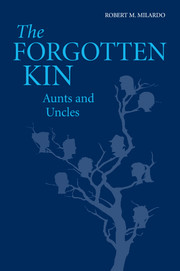Book contents
Preface
Published online by Cambridge University Press: 20 January 2010
Summary
[My aunt and I] spent hours together at her country house, weeding, watering, planting. No question of mine was too repetitious or unworthy. “No,” she smilingly answered once, “peat moss is not a person.”
Paula DiPerna, 1998A STORY FOUND
I was raised in a typical Italian-American family. It was large and sociable. Family gatherings were frequent, offered occasions to visit and for children to play, and always centered on food and talk. Our home was near town, and within a short drive were the homes of my mother's six sisters and two brothers and my father's sister and three brothers. The sisters talked daily; the brothers played cards every week. Nearly all of my aunts and uncles, as well as my father, worked in what Eisenhower called the nation's “military industrial complex,” although I'm not sure my family thought of it in this way, and they looked at me kind of oddly when I brought it up one Christmas. I don't think I was an especially difficult child, certainly not any more difficult than my brothers or cousins, but I did at the time think my parents were occasionally, and without justification or provocation, entirely unreasonable. At these times, I visited Aunt Bea with my list of complaints. Bea is my mother's youngest sister. She had five daughters, one son, and a husband who played the clarinet.
- Type
- Chapter
- Information
- The Forgotten KinAunts and Uncles, pp. xi - xxPublisher: Cambridge University PressPrint publication year: 2009



